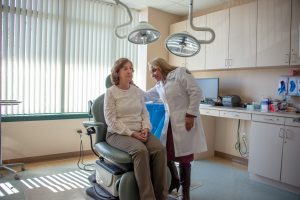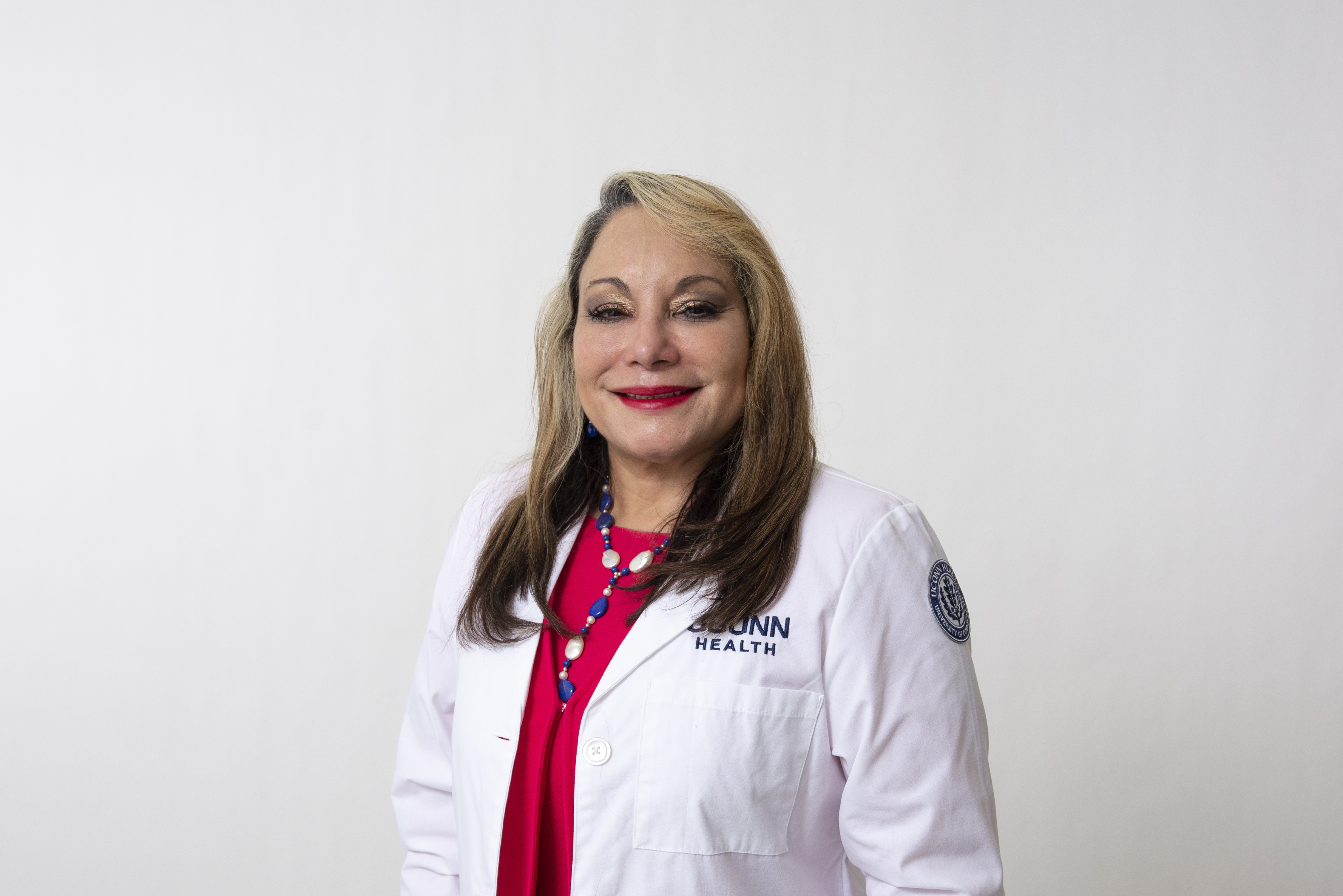Dr. Maritza Perez has joined UConn Health’s Department of Dermatology bringing with her more than two decades of Mohs surgery experience for the careful excision of skin cancer, including the deadliest form of melanoma.
“My mission is to save lives from melanoma by catching this dangerous skin cancer in its earliest stages,” says Perez. “If we can catch it early we can cure it by precisely taking the cancer out with Mohs surgery before it spreads deeper into the skin or body, and carefully repairing the skin to make it look aesthetically pleasing.”
She stresses, “Don’t wait. If you see any unusual skin changes, especially with a mole, or if a skin area is bleeding and just won’t heal, see your dermatologist right away to help make a quick diagnosis of the skin issue.”

Perez recommends everyone make time to get the critical annual skin check with a board-certified dermatologist. However, if you are high risk for developing skin cancer or have had a past skin cancer, you need to be seen for a skin check every 6 months, and every 3 months if you are a melanoma survivor.
When it comes to skin cancer the best plan of action is to take steps to prevent its development says Perez. She advises that if you are someone with a lot of moles make sure to limit your sun exposure, wear protective sunglasses and clothing when outdoors to safeguard your skin, and wear sunscreen every day. Importantly, she stresses for everyone to avoid any use of sun tanning lamps and tanning beds as they significantly increase a person’s chance of developing melanoma.
“While there are family history genetic components to one’s risk of developing a skin cancer or melanoma in their lifetime, we do know that sun damage can induce genetic mutations in the skin and our moles leading to cancer,” says Perez.
As coauthor of the popular consumer health guide, “Understanding Melanoma: What You Need to Know,” Perez shares the latest diagnostic and treatment options, and updates on the genetics and statistics regarding melanoma. The book, now in its fifth edition, was written with her mentor, Dr. Perry Robins, a pioneer in Mohs surgery who she trained with as a dermatology fellow. Robins is the founder and former president of the Skin Cancer Foundation.
“While we have access to newly available treatments for caring for patients with advanced melanoma, whether promising monoclonal antibodies or immunotherapies in clinical trials, we prefer not to use them. Prevention of skin cancer and catching it early is critical for a cure.”
In addition to skin cancer surveillance and Mohs surgery, Perez specializes also in cosmetic dermatology.
“I always want to help make your best way of beautiful in your own skin,” says Perez who uses advanced lasers and the latest fillers on the face and hands. She also uses innovative ways to smooth skin with ablation, melt excess fat, treat troublesome veins, and remove benign skin lesions.
Perez has always been fascinated by the skin, the body’s largest organ.
“Our skin shows the most about our health,” says Perez. “They say the eyes are the window to our soul, but it is truly our skin that is the opening to the rest of our body’s internal health.”
Perez now treats patients in Farmington at UConn Health’s dermatology office location at 21 South Road.
“I’m excited to be here,” said Perez who joins UConn Health from her Mohs surgery private practice in Danbury. A native of Puerto Rico, Perez has more than 30 years of clinical experience caring for patients and the educational training of dermatology residents at academic medical centers such as the University of Puerto Rico School of Medicine, Yale, and NYU, Columbia, and Mount Sinai Health System in New York City.
Learn more about Perez, here.



